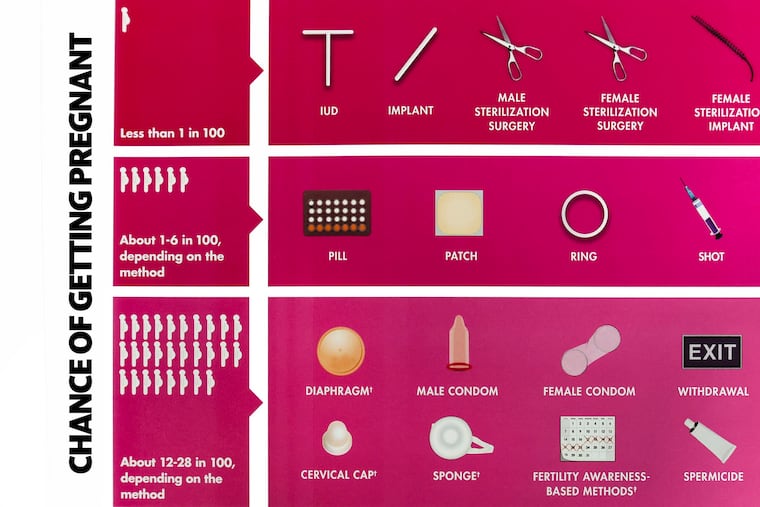It’s time to talk about birth control with boys | Expert Opinion
Two doctors weigh in on how to talk to boys about contraception.

Preventing teen pregnancy is not just a “girl thing.” In this day and age, it must also include boys. Research has shown that boys usually know about condoms, but that’s just not enough.
Because almost half of teenagers have had sex by the time they graduate from high school, a lot of young people are at risk of becoming parents. Regardless of gender, all teens need to understand how to prevent pregnancy until they are ready to become parents. And who best to help them with this? Their own parents!
That’s where we come in — to refresh your knowledge about birth control so you can have an up-to-date talk with your kids. All birth control methods offered to teenagers are safe, reversible, and do not affect a girl’s future fertility. Dual methods — combining condoms with another effective form of birth control — are the best, most effective birth control.
Long-acting reversible contraceptives (LARCs) are more than 99% effective at preventing pregnancy and our top recommendation. There are two types of LARCs:
The intrauterine device (IUD) is a small T-shaped device that a medical provider inserts into the uterus and can remain for six to eight years, depending on the IUD.
The birth control implant is a 1½-inch flexible plastic rod that a medical provider inserts under the skin of the upper arm, where it can remain for four years.
“Depo” (DepoProvera) injections are the next most effective option, preventing pregnancy 97% of the time. Depo contains a long-acting form of the hormone progestin that the medical provider injects in the buttock or arm every three months.
The birth control pill, patch, and vaginal ring are widely used and are 92% effective at preventing pregnancy. They differ in that the pill is taken by mouth daily, the patch is applied to the skin weekly, and the vaginal ring is inserted into the vagina monthly (like a tampon).
» READ MORE: Over-the-counter birth control? A drugmaker is seeking FDA approval.
Condoms are available for use over the penis or inside the vagina. The male condom is 85% effective, and the female condom is 79% effective. They also significantly reduce the likelihood of transmitting sexually transmitted diseases.
Emergency contraception pills can be taken within three to five days of having sex if no birth control was used or if the condom broke.
Now it’s time for The Talk.
Need an icebreaker? You could try taking a cue from his Spotify playlist, which is likely full of songs with sexual lyrics.
Or maybe you’re the casual, chill parent. Consider striking up a conversation with some basic questions — “How was school?” “What did you work on at soccer practice?” “What do you know about birth control?”
If he wasn’t paying attention before, he will be now.
We don’t want to put words in your mouth, but here are some additional tips you could try:
Ask to have a conversation. Instead of launching into a lecture, try “Can we talk?” Asking his permission to chat can make him feel in control.
Remind him your love is unconditional. Letting teenagers know that you will love them no matter what they tell you is important and (it is hoped) makes them feel more comfortable opening up.
Acknowledge the awkwardness. A bit of emotional honesty can go a long way with teens — let him know it’s awkward for you, too, but that you’ll get through it together.
Focus on facts. Skip the birds and the bees, and just be direct. “The best way to prevent pregnancy and sexually transmitted diseases is not having sex. But if you do, make sure you use protection.”
Detail the options. Walk through the different forms of birth control — as we’ve outlined for you above.
Be patient if he has questions. (No laughing, exasperated sighing, or getting angry — remember, you just told him you love him unconditionally.) If you don’t know the answer, research it together.
Empowering your teenage son with important information about birth control and encouraging dual methods are the first steps in helping prevent teenage pregnancy. Next, encourage him to have this discussion with a current partner (if he has disclosed this to you) or with future partners.
Research shows that these conversations are happening among teenagers only half the time. The responsibility can’t be left entirely to girls. After all, it’s not just a girl thing — it takes two.
Grayton Downing is a pediatric resident and Rima Himelstein is an adolescent medicine specialist at Nemours Children’s Hospital in Delaware.